Lawmakers, Advocates Say Election Board’s Accessible Ballot Efforts Not Enough
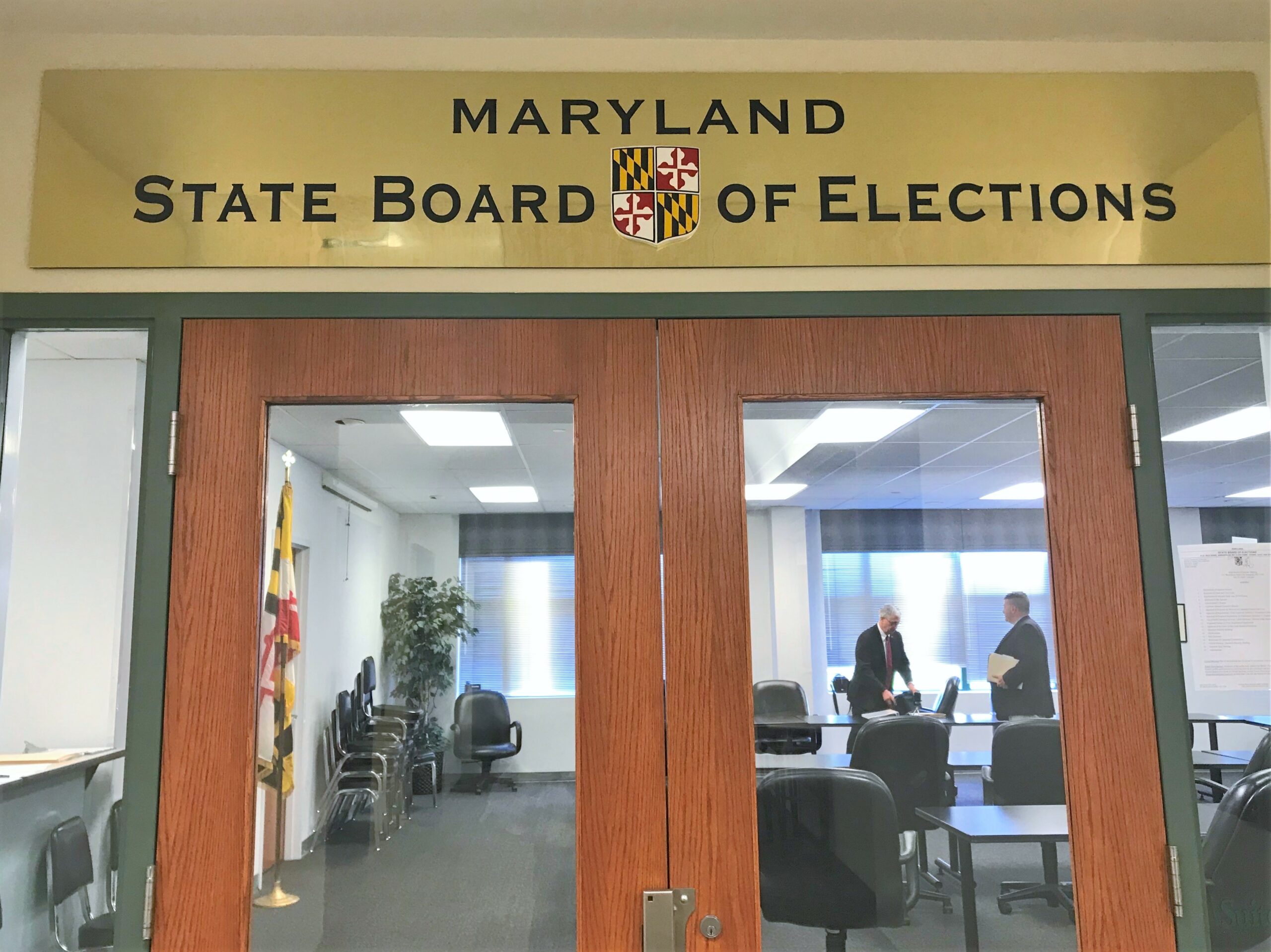
Maryland election judges will have a new script to follow in the 2020 elections – a move aimed at protecting the privacy of disabled voters who use electronic ballot-marking devices – but advocates and lawmakers say the proposed changes don’t go far enough.
The Board of Elections passed a policy last month that would encourage every voting precinct to record at least five ballots through the electronic ballot-marking devices. On Thursday, the board approved language that election judges will use to try to make that happen:
“There are two ways to mark your ballot – either by hand or with the electronic device. Which would you prefer?”
The board is trying to boost use of the machines in the 2020 election to help shield the ballot privacy for voters with disabilities who must use them. ExpressVote ballot-marking devices allow voters who are blind or have other disabilities to use headphones, magnification, touchscreens and other features to independently cast ballots. But the machines also produce a ballot printout that’s a different size and shape than the paper ballots cast by a vast majority of Maryland voters.
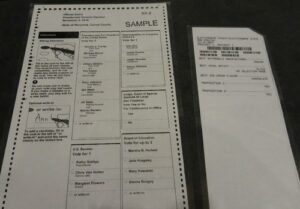
Maryland’s standard voting ballot, left, and the ballot for persons with disabilities. Institute on Disability and Public Policy photo
That amounts to a distinguishable and segregated ballot and takes away the right to vote privately from disabled Marylanders, advocates say.
Ronza Othman, president of the National Federation of the Blind of Maryland, was skeptical after the board’s vote to encourage the modest increase of ExpressVote ballots last month. On Friday, she didn’t think the proposed language to be used by election judges will be enough to substantially boost ExpressVote usage.
“While the Board of Elections may attempt to make small gestures to the population of Maryland voters who have been subjected to segregated voting, these gestures do not resolve the underlying issue – that people with certain disabilities must use one voting system but those without disabilities use another,” Othman wrote in an email Friday. “Creating language that the Board claims to be neutral does nothing to ensure that the blind and others with disabilities regain their right to a secret ballot, as the ballots remain significantly different in size and form, making them identifiable.
Two lawmakers who sponsored unsuccessful legislation last session that would have required all voters in the state to use the ballot-marking devices – ensuring that no voter’s ballot could be distinguished – have also expressed disappointment.
“The disability community will want a much more robust policy that will provide them with true anonymity. … I don’t think this is as far as we need to go,” Del. Nick Mosby (D-Baltimore City) said of the board’s actions so far.
He and Sen. Clarence Lam (D-Howard) sent a letter to the board before last month’s vote, urging a more far-reaching solution.
In an email after the board’s action last month, Lam said the addition of a small number of ExpressVote machines and the five-ballot goal were the equivalent of “adding deck chairs to the Titanic, and the lack of true policy and procedural improvements by SBE means that it doesn’t address why this ship is sinking in the first place.”
One reason the board moved forward with the more modest changes was cost.
The state would need about 18,000 ExpressVote machines to use them for every voter, but currently leases about 3,500. The increased cost was estimated at $12 million a year, with the state paying $6 million and counties paying the other half. It is also unlikely that the state could procure new leases for enough machines for universal use before the next election.
Board members spent some time Thursday debating the language election judges will now use in 2020. The scripts provided during the last election – in which hundreds, possibly thousands, of precincts saw two or fewer ExpressVote ballots cast – led some voters to believe the electronic devices were available only to people with a disability. A poll of local election boards showed that a majority supported the statement chosen by the board.
Othman did not say whether the federation is specifically considering legal action to force a change. “We are exploring all avenues to restore the secret ballot for blind Marylanders,” she wrote.
Both Lam and Mosby have said they are considering reintroduction of legislation next session. The House version of the bill was referred for summer study by the Ways and Means Committee, but meetings on the issue have not yet been held, Mosby said.
Did someone forward this to you?
Get your own daily morning news roundup in your inbox. Free. Sign up here.

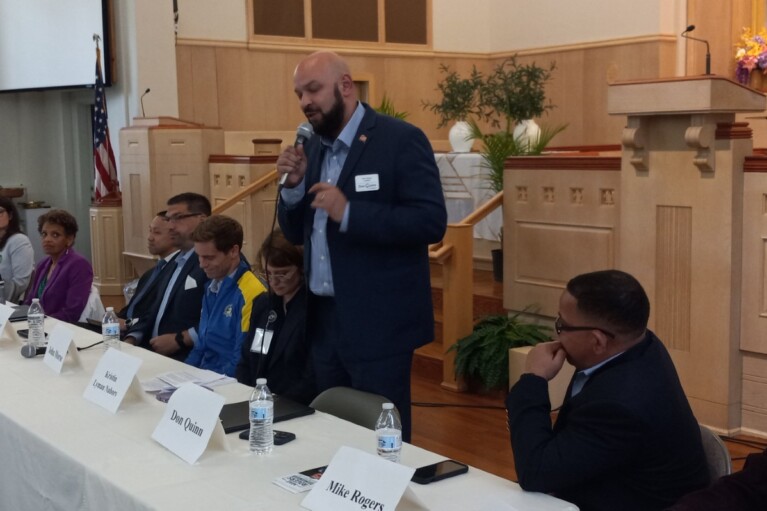
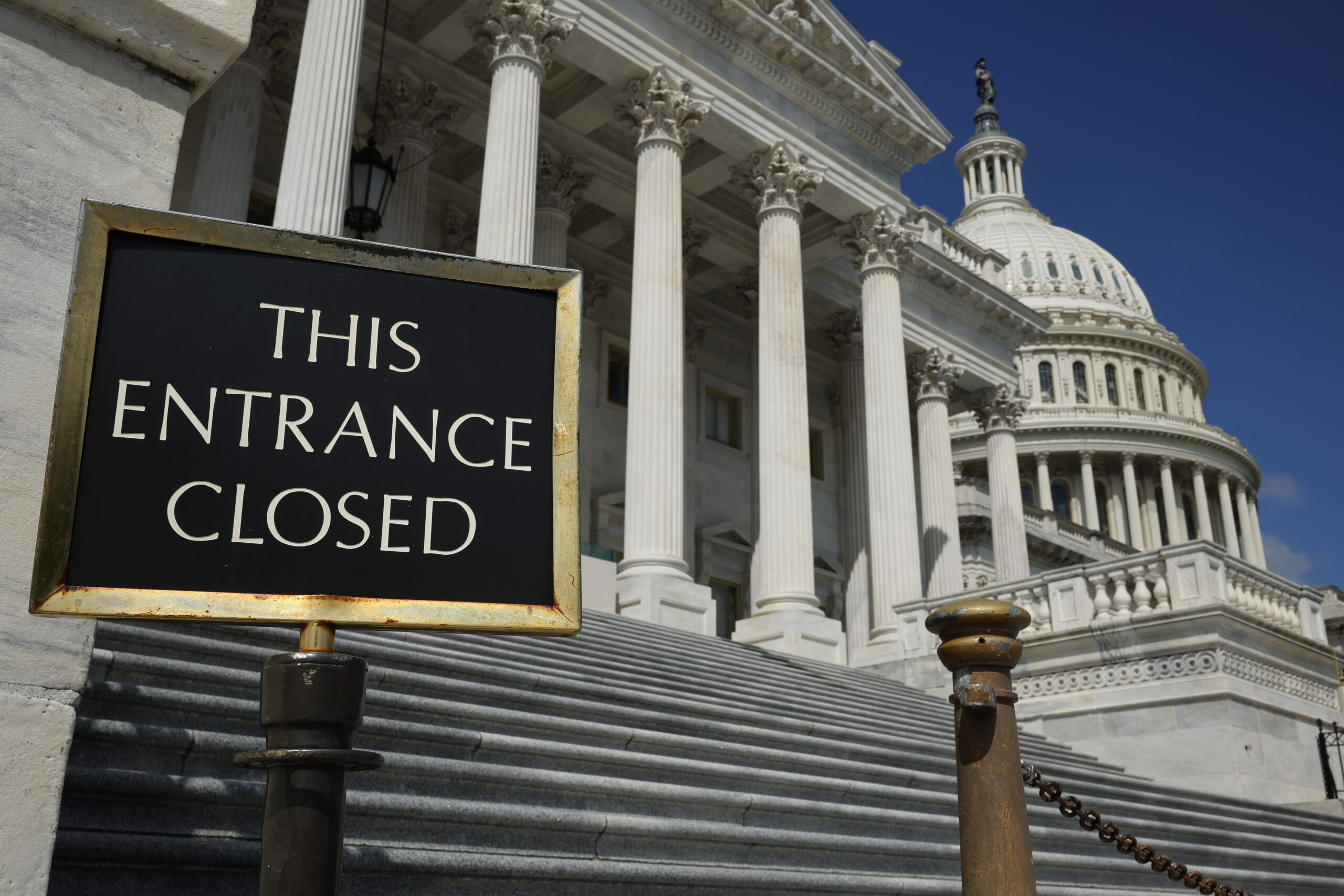
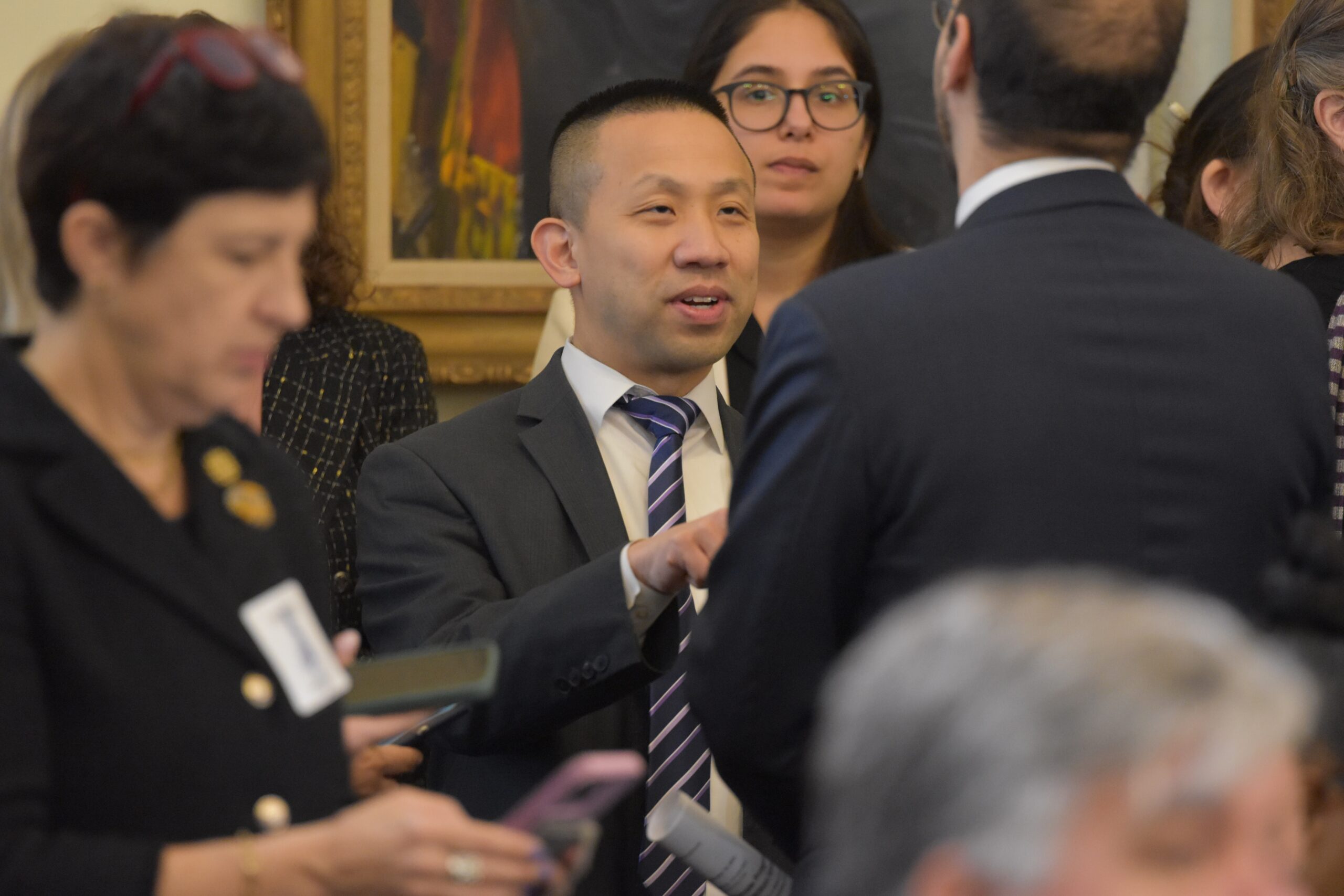
 Creative Commons Attribution
Creative Commons Attribution